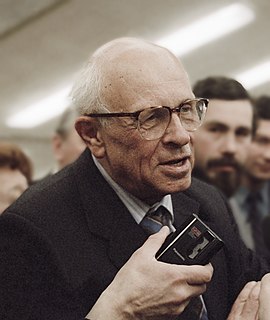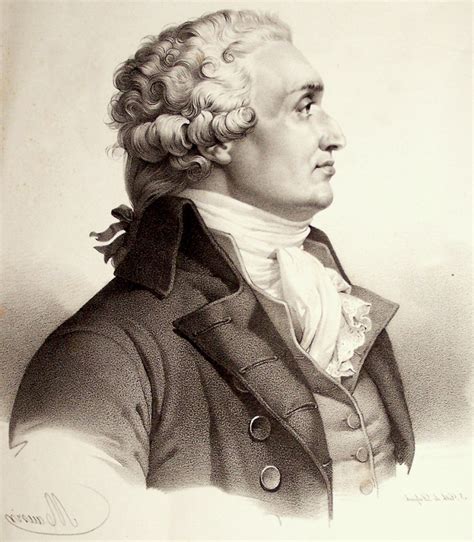A Quote by Oliver Heaviside
Now, in the development of our knowledge of the workings of Nature out of the tremendously complex assemblage of phenomena presented to the scientific inquirer, mathematics plays in some respects a very limited, in others a very important part. As regards the limitations, it is merely necessary to refer to the sciences connected with living matter, and to the ologies generally, to see that the facts and their connections are too indistinctly known to render mathematical analysis practicable, to say nothing of the complexity.
Quote Topics
Analysis
Assemblage
Complex
Complexity
Connected
Connections
Development
Facts
Generally
Important
Important Part
Knowledge
Known
Limitations
Limited
Living
Mathematical
Mathematical Analysis
Mathematics
Matter
Merely
Nature
Necessary
Nothing
Now
Others
Our
Out
Part
Phenomena
Plays
Presented
Refer
Regards
Render
Respects
Say
Sciences
Scientific
See
Some
Too
Tremendously
Very
Related Quotes
Our alleged facts might be true in all kinds of ways without contradicting any truth already known. I will dwell now on only one possible line of explanation, - not that I see any way of elucidating all the new phenomena I regard as genuine, but because it seems probable I may shed a light on some of those phenomena. All the phenomena of the universe are presumably in some way continuous; and certain facts, plucked as it were from the very heart of nature, are likely to be of use in our gradual discovery of facts which lie deeper still.
To criticize mathematics for its abstraction is to miss the point entirely. Abstraction is what makes mathematics work. If you concentrate too closely on too limited an application of a mathematical idea, you rob the mathematician of his most important tools: analogy, generality, and simplicity. Mathematics is the ultimate in technology transfer.
We regard as 'scientific' a method based on deep analysis of facts, theories, and views, presupposing unprejudiced, unfearing open discussion and conclusions. The complexity and diversity of all the phenomena of modern life, the great possibilities and dangers linked with the scientific-technical revolution and with a number of social tendencies demand precisely such an approach, as has been acknowledged in a number of official statements.
As regards authority I so proceed. Boetius says in the second prologue to his Arithmetic, 'If an inquirer lacks the four parts of mathematics, he has very little ability to discover truth.' And again, 'Without this theory no one can have a correct insight into truth.' And he says also, 'I warn the man who spurns these paths of knowledge that he cannot philosophize correctly.' And Again, 'It is clear that whosoever passes these by, has lost the knowledge of all learning.'
Here is a quilted book about mathematical practice, each patch wonderfully prepared. Part invitation to number theory, part autobiography, part sociology of mathematical training, Mathematics without Apologies brings us into contemporary mathematics as a living, active inquiry by real people. Anyone wanting a varied, cultured, and penetrating view of today's mathematics could find no better place to engage.
Physical science enjoys the distinction of being the most fundamental of the experimental sciences, and its laws are obeyed universally, so far as is known, not merely by inanimate things, but also by living organisms, in their minutest parts, as single individuals, and also as whole communities. It results from this that, however complicated a series of phenomena may be and however many other sciences may enter into its complete presentation, the purely physical aspect, or the application of the known laws of matter and energy, can always be legitimately separated from the other aspects.
It seems perfectly clear that Economy, if it is to be a science at all, must be a mathematical science. There exists much prejudice against attempts to introduce the methods and language of mathematics into any branch of the moral sciences. Most persons appear to hold that the physical sciences form the proper sphere of mathematical method, and that the moral sciences demand some other method-I know not what.
"Blessed are the pure in heart, for they shall see God." Can we see God? Of course not. Can we know God? Of course not. If God can be known, He will be God no longer. Knowledge is limitation. But I and my Father are one: I find the reality in my soul. These ideas are expressed in some religions, and in others only hinted. In some they were expatriated. Christ's teachings are now very little understood in this country. If you will excuse me, I will say that they have never been very well understood.
Those who assert that the mathematical sciences say nothing of the beautiful or the good are in error. For these sciences say and prove a great deal about them; if they do not expressly mention them, but prove attributes which are their results or definitions, it is not true that they tell us nothing about them. The chief forms of beauty are order and symmetry and definiteness, which the mathematical sciences demonstrate in a special degree.
Our eyes see very little and very badly – so people dreamed up the microscope to let them see invisible phenomena; they invented the telescope...now they have perfected the cinecamera to penetrate more deeply into the visible world, to explore and record visual phenomena so that what is happening now, which will have to be taken account of in the future, is not forgotten.
To do any important work in physics a very good mathematical ability and aptitude are required. Some work in applications can be done without this, but it will not be very inspired. If you must satisfy your "personal curiosity concerning the mysteries of nature" what will happen if these mysteries turn out to be laws expressed in mathematical terms (as they do turn out to be)? You cannot understand the physical world in any deep or satisfying way without using mathematical reasoning with facility.


































